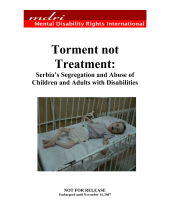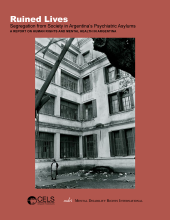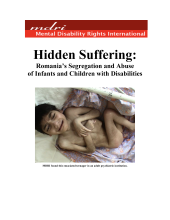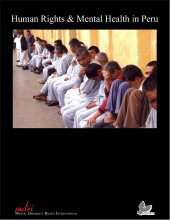Torment Not Treatment: Serbia’s Segregation and Abuse of Children and Adults with Disabilities
Date
From July 2003 to August 2007, MDRI has documented a broad array of human rights violations against people with disabilities, segregated from society and forced to live out their lives in institutions (all observations in this report are from December 2006 through August 2007 except as noted). Filthy conditions, contagious diseases, lack of medical care and rehabilitation, and a failure to provide oversight renders placement in a Serbian institution life-threatening.







